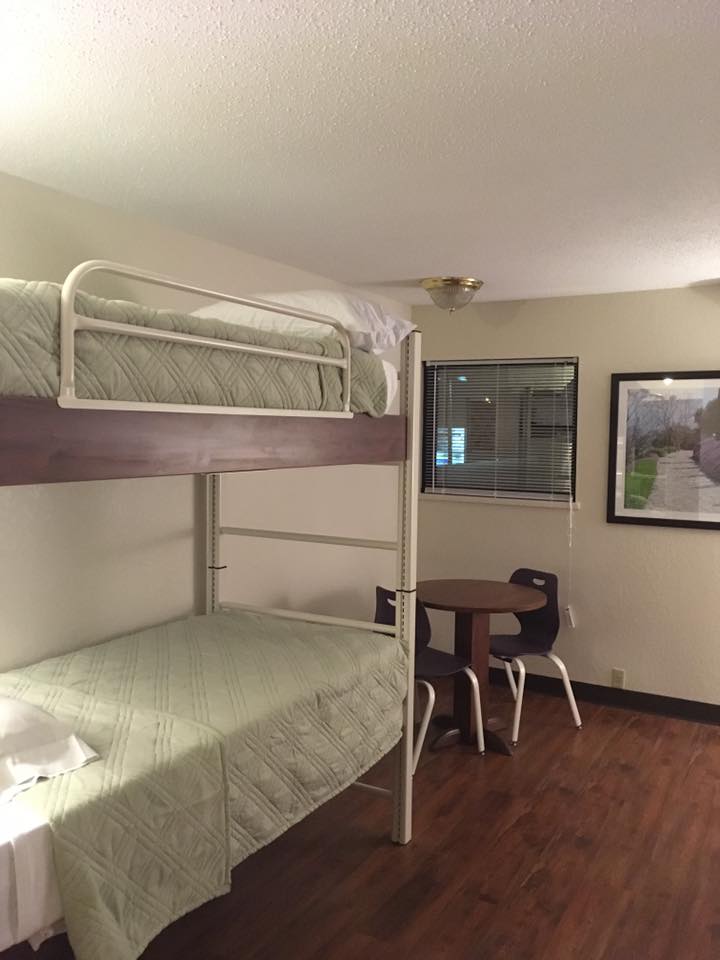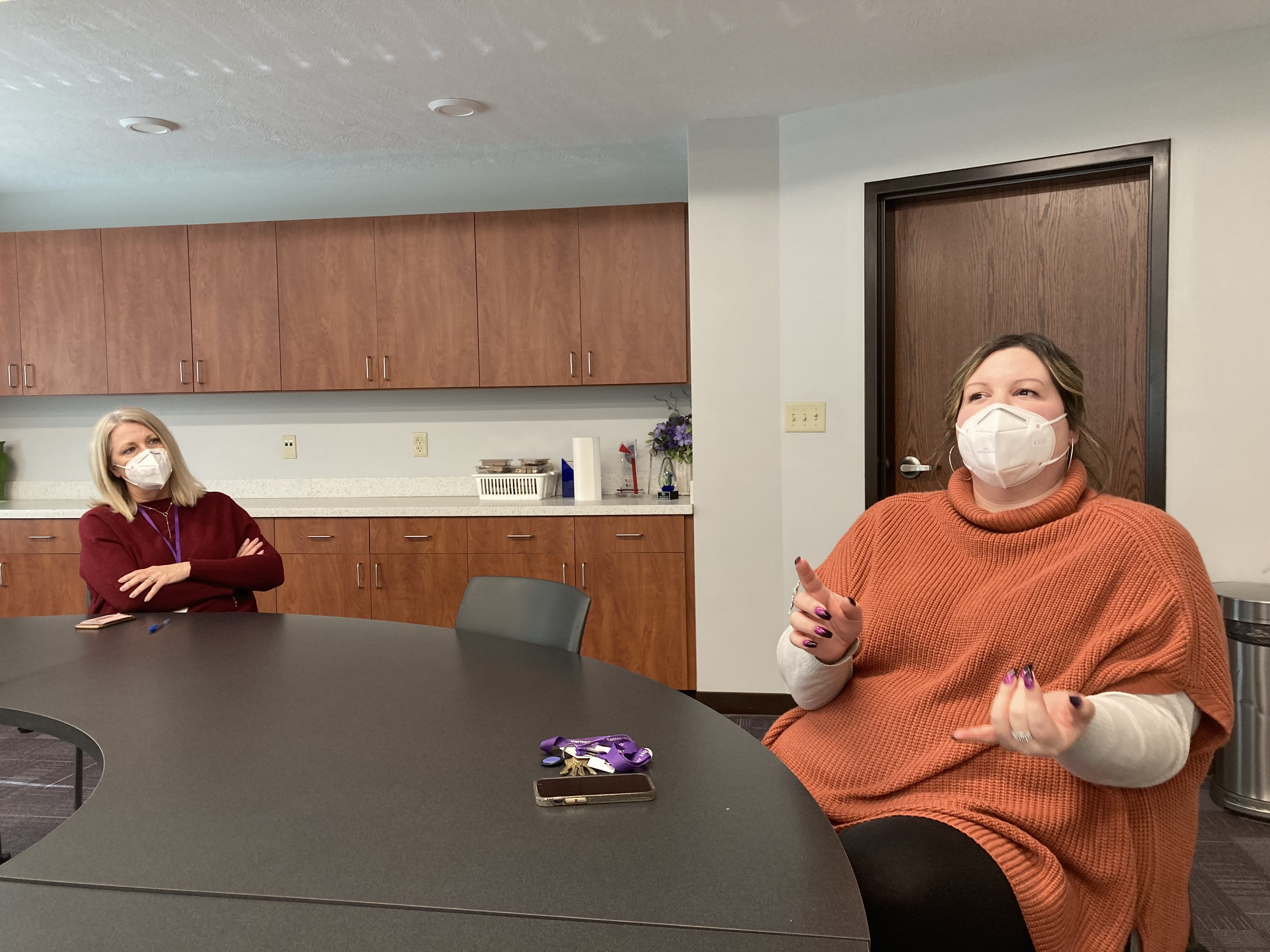Harmony House, Greene County’s only shelter for victims of domestic violence and their children, has been operating at reduced capacity the past two years to prevent the spread of COVID-19.
Despite having to turn more victims away, the staff at Harmony House discovered they are now able to increase and improve the quality of services for their clients.
The improvements have been so significant that Harmony House’s board of directors recently approved to make the capacity changes permanent.
“It’s kind of the silver lining of COVID,” said Kristen Snell, Outreach Community Director at Harmony House. “Before the pandemic, when we had four individuals per room, case managers had a higher caseload so it meant that they weren’t able to spend as much time with clients as they are now. We are able to better support clients as they overcome any of the barriers they might have to access housing and things like that.”
Harmony House, which is located in a former hotel in east Springfield, has 41 rooms with 168 beds. Prior to the pandemic, up to four individuals were put in a room, and families (a parent with kids) got their own rooms. According to Harmony House Marketing and Communications Director Jackie Langdon, average capacity pre-pandemic was about 140.

To slow the spread of COVID-19, capacity was reduced to either one family or one individual per room. This resulted in capacity being reached at around 85 depending upon how many families were in the shelter at a specific time.
Allowing survivors of domestic violence to have their own rooms created an environment that is more conducive to healing, Langdon said, as well as helped manage staffing shortages due to the pandemic.
Once the Omicron surge is over, Langdon said they hope to be able to have two individuals or one family per room.
But the days of having four individuals per room are over. This change is cutting down on a tremendous amount of drama and trauma for clients, many of whom need medical attention, mental health services, substance abuse services or help to find a job, get personal papers or enroll their children in school.
“When clients come to shelter, it’s — everything is a crisis. They basically had to leave their entire life behind,” Snell said. “Maybe they’ve never been in a shelter before, so this is kind of a shock because it’s communal living when you’re used to having your own home.
“When you have four people per room, you have four strangers coming together who are coming from different backgrounds,” she continued. “You may have someone who has substance abuse issues. You may have someone with mental health issues. You may have someone who has none of those issues. You may have multiple people with substance abuse or mental health issues. Sometimes that all just kind of feeds off each other and exacerbates each person’s crisis and the things that they’re struggling with. It’s sort of re-traumatizing to be constantly in that.”
A ‘more intentional’ approach

Reducing capacity for individuals coming into the shelter is not the only change Harmony House is implementing.
Harmony House is in the process of adopting the Full Frame Initiative, a trauma-informed approach that was also adopted by Missouri’s Children’s Division to help better serve child abuse victims and families.
In implementing the program in a domestic violence shelter setting, Harmony House case managers will help clients focus on these five domains of wellbeing: social connectedness, stability, safety, mastery and meaningful access to relevant resources.
“We’ve always provided very client-centered and client-focused services,” Snell said. “But with Full Frame, our approach is going to be more intentional to each of those five domains instead of just focusing on: Someone comes in, they’re in crisis, they need personal documents, they need to find housing, they need to find a job.”
Snell used the domain of social connectedness to illustrate how Full Frame will improve services provided at Harmony House:
“We are going to focus on helping them navigate whether they need to re-establish relationships with family or friends that maybe their abuser had cut them off from or form new relationships with new coworkers or new friends that they meet,” she said, “Helping them build that social network so that once they leave shelter, they know who they can turn to. If they are having a really bad day and they experience a mental health crisis, they’re prepared to know who to reach out to.
“It’s just really being intentional with what we focus on so that we can set them up for as much success as possible once they leave shelter,” Snell said. “It’s kind of thinking beyond the crisis, but what is your life really going to look like outside of shelter? And how can we help you navigate through that while you’re here and you have the support?”
Harmony House employees have already been going through Full Frame Initiative training, and no additional staff is needed to implement the program.
Langdon said Harmony House will release more details about the program later this year.
Need help?
Find resources for victims of domestic violence by visiting greenecountyfamilyjusticecenter.org or calling 417-874-2600.
For after-hours assistance: Call the Harmony House/Victim Center's 24-hour safe line at 417-864-SAFE (7233).

